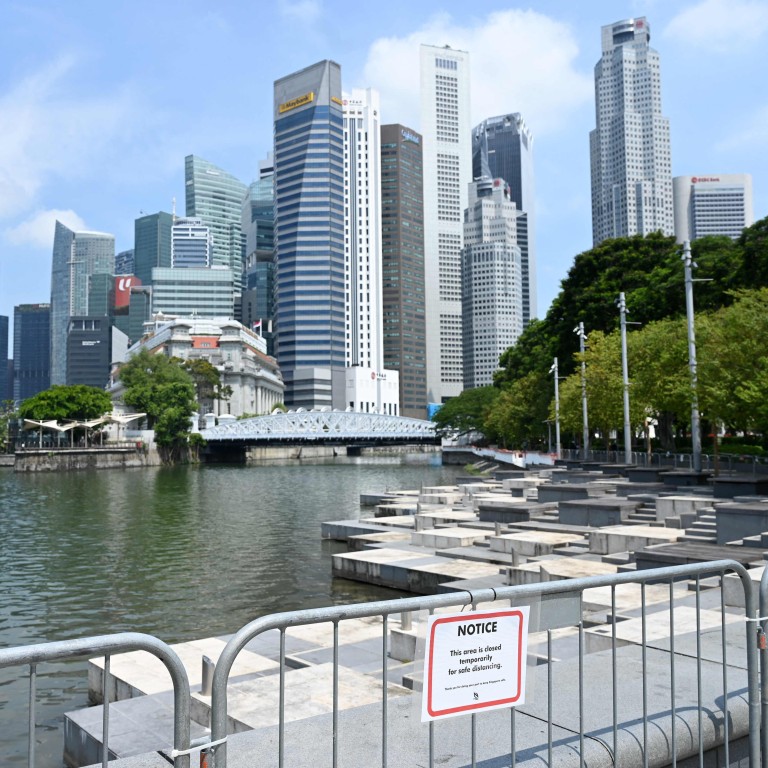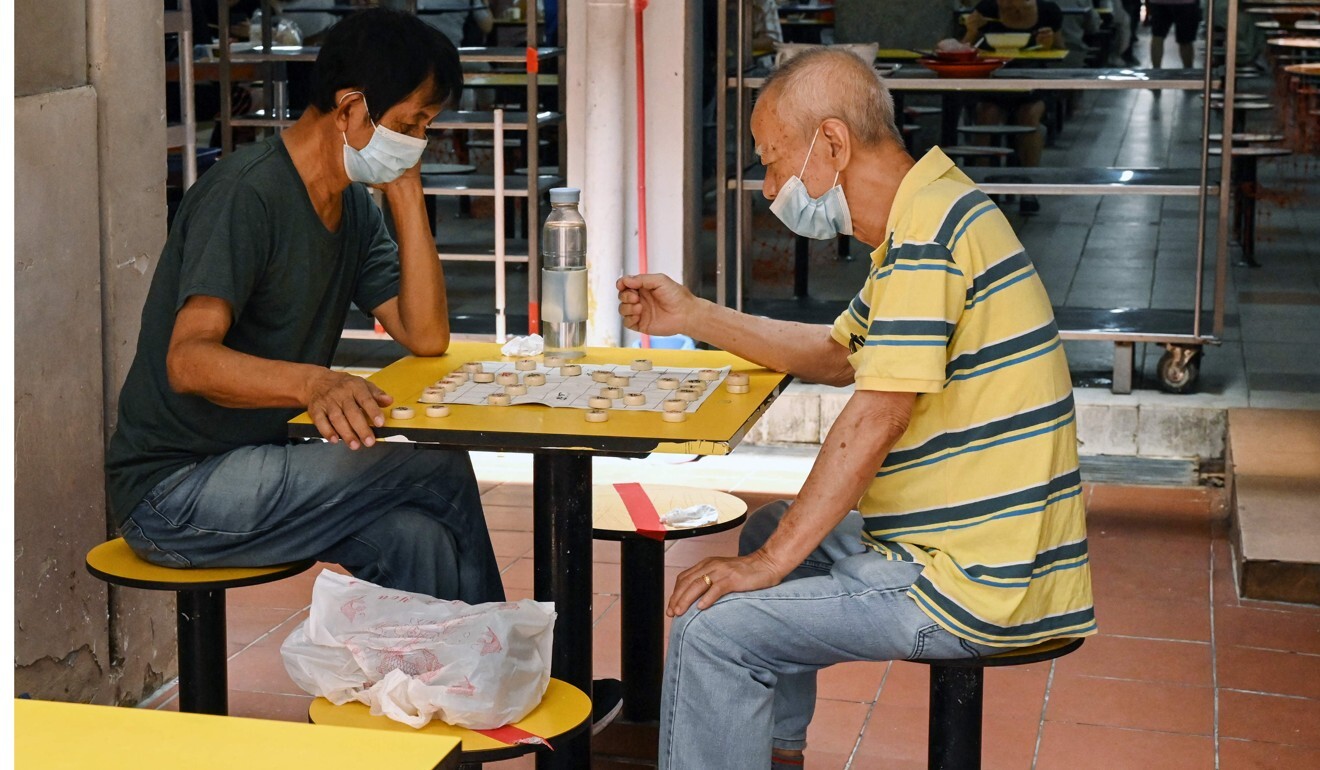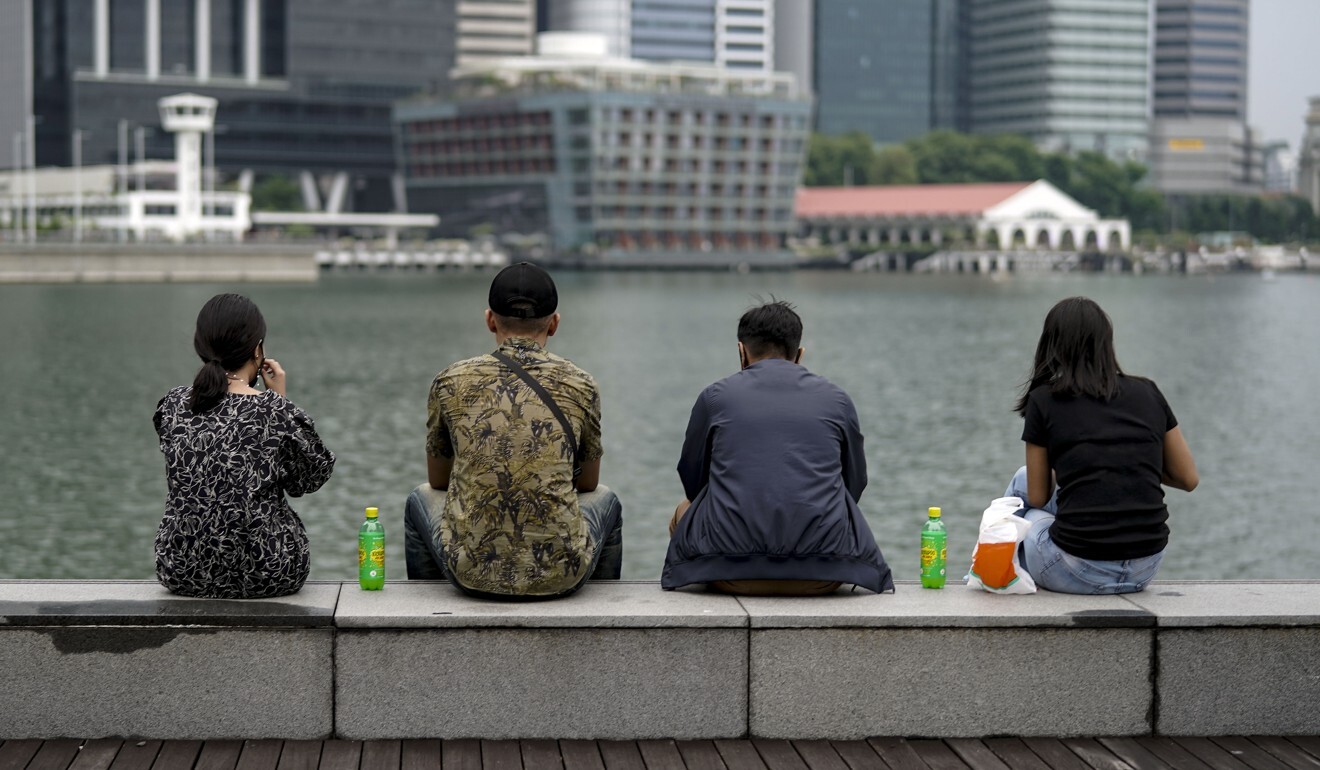
Singapore reimposes coronavirus curbs as karaoke bar cluster upends reopening plans
- A cluster involving at least 120 people linked to nightlife establishments has resulted in over 2,000 being sent into quarantine
- Tighter social distancing measures were also imposed, with only two unvaccinated people allowed to dine together
The Health Ministry also said it would revert to tighter social distancing measures, with unvaccinated people only allowed to dine together in pairs in restaurants, while fully vaccinated individuals could continue eating out in groups of up to five at establishments that have sufficient checks in place. But only two people would be allowed to dine together at hawker centres, coffee shops and food courts, regardless of vaccination status. Workplace social events were also not permitted.
“This is a major setback in our journey to recovery and I understand many Singaporeans will be disappointed, and so are we. We must respond to this emerging cluster quickly, especially to protect those who have not yet been vaccinated completely,” said Trade and Industry Minister Gan Kim Yong.
While nightlife establishments have remained closed in Singapore since last October, the government allowed some to become food and beverage outlets, even offering grants for them to “pivot” to a new business model.
But “clandestine and illegal activities” by several of these outlets led to a new cluster that now accounts for 120 infections, authorities said on Friday.
More than 400 nightlife outlets that had shifted their business models would be shut until the end of the month for staff to get tested, with officials checking on their Covid-19 protocols.
Individuals who had visited the lounges at the same time as an infected person will now be required to get tested for Covid-19 at a designated centre. Previously, these tests were not compulsory. Some 2,480 individuals, including close contacts of the cases, have also been quarantined as of Friday.
Singapore counters growing cluster around karaoke bars
Health Minister Ong Ye Kung told a briefing that containing the new cluster was particularly challenging. Unlike previous clusters where those involved could be easily contacted, “the problem with this cluster is that we don’t have full information of who the customers are, where they have been to, and where they are now”, he said.
Health care analysts agreed, saying it could be hard to identify those forming part of this cluster as hostesses and patrons of lounges would want to lie low.
Ong stressed that the government was “not rewinding in a big way” its plans to gradually ease more restrictions along with the climbing vaccination rate. Singapore had earlier indicated it would move away from a Covid-zero strategy and treat the virus as endemic.

‘Detour’
Under this new approach, vaccinations, frequent virus testing and the use of new and effective therapeutic drugs will become the means by which Singapore can reopen its economy and allow for quarantine-free travel.
About 73 per cent of Singapore’s 5.7 million population has received at least one dose of either the Pfizer-BioNTech or Moderna vaccines, while about 45 per cent is fully vaccinated. Singapore is targeting having two-thirds of the population fully vaccinated by its National Day on August 9.
Despite Singapore’s relatively high vaccination rate compared to its Asian neighbours, Ong said there were concerns about secondary infections.
For example, patrons to these lounges could bring the virus home to parents and grandparents who are not vaccinated and could end up in “grave danger”.
The higher the vaccination rate, the more we can keep to the road
The vaccination rate among seniors in Singapore is slightly below 70 per cent, despite the age group having had early access to the jabs. Authorities said this figure was worrying and could be much higher.
Responding to a question by This Week In Asia, Ong likened the setback as a “detour” from Singapore’s plan to live with Covid-19, which he described as an “expressway”.
“The higher the vaccination rate, the more we can keep to the road … we are still very determined to go on to the road map and transit to an endemic situation,” said Ong.

Cluster
This latest cluster first emerged on July 12, when the health ministry said it was investigating cases among Vietnamese social hostesses who had frequented karaoke lounges. One of the earliest identified cases was a woman whose contact tracing records showed she had frequented many karaoke outlets. A short-term visit pass holder from Vietnam and individuals living in the same household as her later tested positive.
By Wednesday, the cluster had grown to 54 infections, and then doubled to 120 on Friday. It has also spread to other parts of the island nation, with recent infections involving a stall assistant at a hawker centre, which was later closed for deep cleaning.
Residents then questioned if border rules were too lax, as 30 of the first 54 cases in this cluster were non-citizens. Particularly, eight were short-term visitors. While authorities said the “arrivals were tested and it’s clear they didn’t bring in the virus”, residents pointed to how the Vietnamese visit pass holder had gained approval for entry under a rule that allows family members of citizens to come to Singapore. She was sponsored for entry by her Singaporean boyfriend.
Debate over tests, jabs hobbles Hong Kong-Singapore Covid-19 travel bubble
The manpower ministry and immigration authorities stressed that those on short-term passes were not allowed to engage in any form of employment, otherwise they could have their visit pass cancelled, be deported and be barred from re-entering Singapore.
Finance Minister Lawrence Wong, who co-chairs the country’s virus task force with Ong and Gan, added: “The consequence of every single action can be so consequential now. As we have seen, one single irresponsible behaviour can have a devastating impact for the entire community.”


